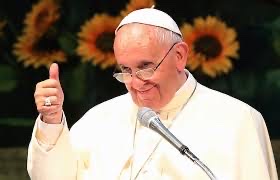The Kurgan Doctrine: One Rule for Me, Another for the Church
If you've followed The Kurgan long enough, you start to notice a pattern.
No, not the paranoid anti-Masonic rants. Not the shirtless pictures of him holding swords, either.
I’m talking about something even more revealing:
His moral theology has two sets of rules.
One for himself.
And a very different, merciless one for everyone else.
Kurgan’s Rule for Himself: Grace Abounds
The Kurgan, by his own admission, was once a materialist, atheist, fornicator, hypnotist, and a believer in past-life regression. And yet — somehow — he found the truth. He changed. He grew. And now he writes Substack sermons denouncing the very type of man he used to be.
But we’re not supposed to mention that. That was before his Damascus moment.
He is now forgiven. Enlightened. An authority on the one true Church (which exists only in his own mind, of course).
He didn’t just get a second chance — he gave it to himself.
“I studied obsessively for four years.”
“I tested Catholicism and found it true.”
“I, I, I…”
He is allowed to sin. He is allowed to be wrong. He is allowed to learn.
And once he's emerged from the fire of self-revision, he gets to call everyone else vermin, frauds, demons, and heretics for not catching up to his current phase of enlightenment.
How convenient.
Kurgan’s Rule for the Clergy: One Strike and You're Out
Now let’s look at how he treats every priest, bishop, and pope who’s ever breathed since 1958:
-
If they signed a Vatican II document, they’re heretics.
-
If they didn’t speak out against Vatican II immediately, they’re cowards.
-
If they said nothing, they’re guilty by silence.
-
If they said something but not enough, they’re modernist infiltrators.
-
If they were born after Vatican II, they’re probably invalid anyway.
There is no chance for learning.
No space for growth.
No room for discernment, context, or history.
No mercy.
One misstep — real or imagined — and you’re done.
Deposed. Degraded. Declared infamous.
According to Kurgan’s Canon Law For Dummies (and Written By One).
So to summarize:
| Kurgan’s Rulebook | The Kurgan | Every Cleric Since 1958 |
|---|---|---|
| Can change his mind | ✅ Permitted | ❌ Impossible |
| Can be wrong for years | ✅ Normal | ❌ Heresy |
| Can repent and teach | ✅ Prophet | ❌ Disqualified |
| Can sin and still lead | ✅ Redeemed Crusader | ❌ Burn the witch |
| Gets understanding | ✅ Always | ❌ Never |
The Hypocrite’s Privilege
In Kurgan’s world, he is the only person on Earth allowed to learn from mistakes.
Everyone else must be born fully formed in theological perfection, or they’re irredeemable.
A 22-year-old Vatican II bishop who didn’t denounce a document in 1965?
🔥 Heretic.
A 60-year-old priest trying to stay faithful while navigating Rome’s chaos?
🔥 Masonic coward.
But a man who:
-
Practiced hypnosis,
-
Believed in reincarnation,
-
Swore off Catholicism for most of his adult life,
-
Called himself a Crusader before even being baptized...
He gets to lead the “real” Church from a keyboard, no questions asked.
Final Thought: The Gatekeeper with No Keys
Let’s be clear: I believe in mercy. I believe in conversion.
I believe God can use any man — even The Kurgan — if he humbles himself and stops swinging his theological battle axe at everyone in the pews.
But the minute a man builds a doctrine where he alone is allowed to evolve while the rest of the Church is stuck in a one-strike purgatory — he’s not teaching truth. He’s building a cult of personality.
So here’s a modest proposal:
If Kurgan is allowed to grow, maybe he could extend that same grace to the Church that taught him the faith he now uses to bludgeon others.
Or maybe not.
After all, learning is only allowed for those seated on the throne of Kurgan’s ego.


Comments
Post a Comment